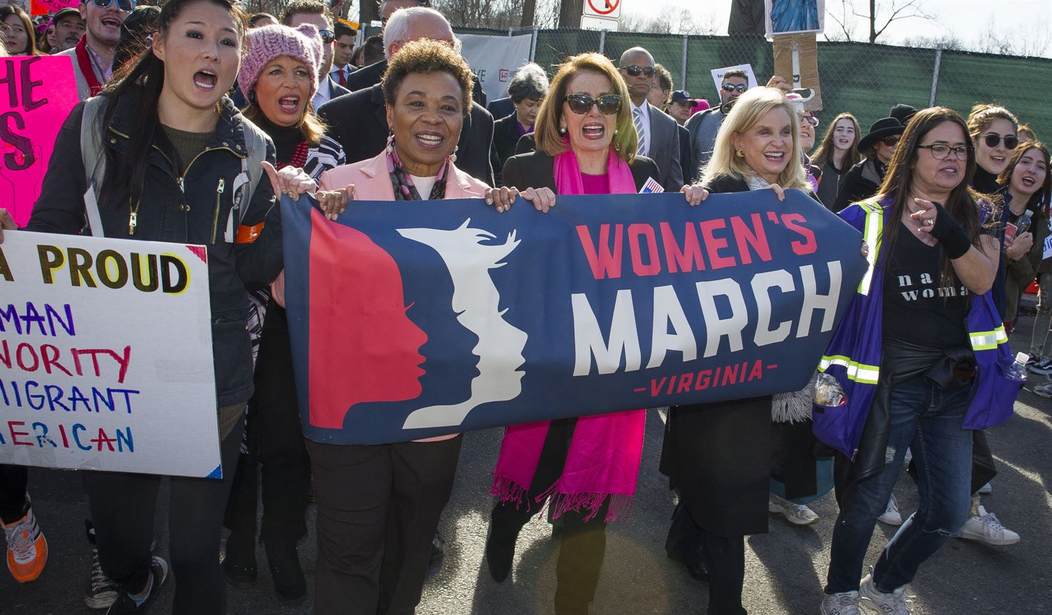This year’s Women’s March has a new name: the “Rally for Abortion Justice.”
On Sept. 27, the Washington Post reported that the Women’s March would return to Washington, D.C., this fall “to fight for abortion access.” Organizers are expecting the D.C. event on Saturday, Oct. 2, to attract up to 10,000 people – not counting those attending the 600 sister marches nationwide. The march began in 2017 as a reaction to the election of Donald Trump as president. Now, the focus is on abortion.
It’s a theme that promises to divide – rather than unite – women.
“Most of the previous marches have occurred in January, but organizers decided to host this year’s event in October to fight imminent threats to abortion access,” reporter Casey Parks wrote. The group’s decision comes after Texas recently banned abortion after an unborn baby’s heartbeat can be detected. It also anticipates a case that the Supreme Court will hear Dec. 1, which challenges Roe v. Wade, the 1973 case that legalized abortion nationwide.
The Women’s March first announced the Oct. 2 marches “to defend abortion rights” in a Sept. 3 press release. Instead of calling them regular “women’s marches,” organizers revealed that this would be a “Rally for Abortion Justice.” Even its merchandise reflected the abortion messaging, with shirts reading “It’s my body, it’s my choice” and “We need to talk about the elephant in the womb.”
While this is a new move for the Women’s March, the group has long embraced abortion, and lists “reproductive rights,” including “open access to safe, legal, affordable abortion,” as one of its principle issues.
“We believe that Women’s Rights are Human Rights and Human Rights are Women’s Rights,” the group’s site reads. “We must create a society in which women … are free and able to care for and nurture their families, however they are formed, in safe and healthy environments free from structural impediments.”
Recommended
But not all women are equally valued and appreciated by the group. Its position excludes pro-life women, women who survived abortions as babies, women who regret their abortions, and unborn baby girls who are aborted because of their sex, among others.
And, in general, women are not unanimously for abortion, particularly unrestricted abortion.
In 2021, Gallup found that only 36% of women say abortion should be legal under any circumstances. In contrast, 64% of women say it should be legal only under certain circumstances or illegal in all circumstances. While a majority of women (52%) identify as “pro-choice,” a significant number (43%) still identify as as “pro-life.”
Numbers from Pew for 2021 also show that not all women support abortion: 62% of women want abortion legal in all or most cases, while 37% want it illegal in all or most cases.
More generally, an AP-NORC poll released in June found that most Americans say abortion should usually be illegal in the second and third trimesters, with 65% of Americans saying abortion should usually be illegal in the second trimester, and 80% saying the same about the third trimester.
Still, the event description for Oct. 2 calls for “unfettered abortion access.”
Pro-life women, including women in the media, have called out the Women’s March before for excluding them. In 2018, Meghan McCain, then a co-host of ABC’s The View, refused to identify as a feminist because “it's so tied up with being pro-choice.” For proof, she pointed to the Women’s March.
“The original year it was done,” she said, “pro-lifers were disinvited from coming.”
She’s right. In 2017, pro-life women condemned the Women’s March after it removed New Wave Feminists – a pro-life, women-led group – from its partner list and never responded to other pro-life groups that asked to participate. After a feminist outcry, the Women’s March even apologized for temporarily accepting New Wave Feminists, an “anti-choice organization.”
But, according to Destiny Herndon-De La Rosa, who heads New Wave Feminists, the Women’s March “knew full well that we were pro-life” when her group applied for sponsorship. That’s because her group placed it in its description, she told National Review in 2019.
When the Women’s March removed New Wave Feminists, it solidified its position by adopting its current pro-abortion platform. Planned Parenthood, the nation’s largest abortion provider, partnered with the event in 2017 and began sponsoring it in 2018. This year, in addition to Planned Parenthood, the group boasts more than 100 partners that back abortion.
But the Women’s March doesn’t have the support of all women, as its name might suggest. Instead, its abortion-centric message divides women – and forgets society’s voiceless: the unborn.

























Join the conversation as a VIP Member